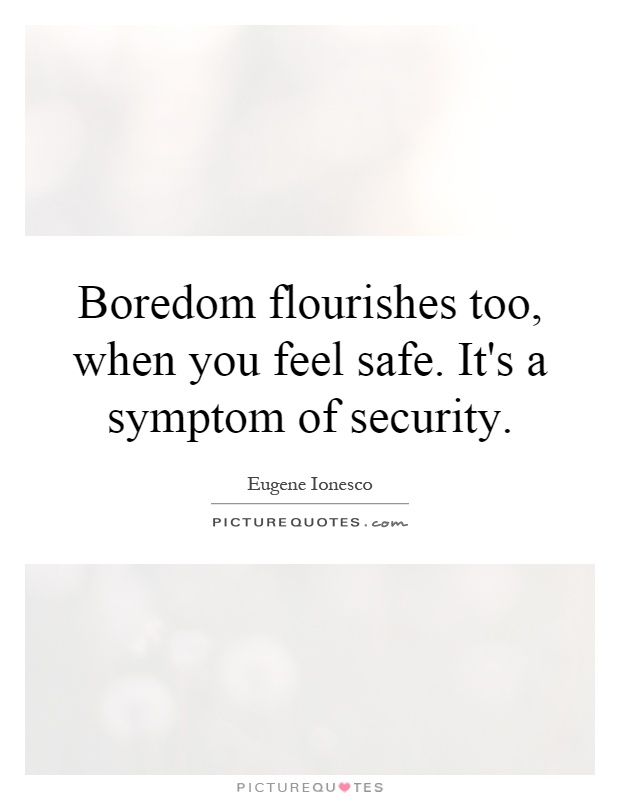Boredom flourishes too, when you feel safe. It's a symptom of security

Boredom flourishes too, when you feel safe. It's a symptom of security
Eugene Ionesco, a prominent Romanian-French playwright known for his absurdist style, often explored themes of existentialism, alienation, and the absurdity of human existence in his works. In the context of Ionesco's philosophy, the statement "Boredom flourishes too, when you feel safe. It's a symptom of security" takes on a deeper meaning.In Ionesco's plays, characters often find themselves trapped in mundane routines and stifling societal norms, leading to a sense of ennui and existential despair. The idea that boredom can flourish in a state of safety and security reflects Ionesco's belief that comfort and stability can breed complacency and a lack of purpose. When individuals feel secure in their surroundings, they may become disconnected from the world around them, leading to a sense of emptiness and apathy.
Ionesco's characters frequently grapple with feelings of alienation and a sense of being adrift in a world that no longer makes sense. In this context, boredom can be seen as a symptom of a deeper existential crisis, a manifestation of the characters' inability to find meaning or purpose in their lives. The safety and security that they cling to only serve to highlight the absurdity and futility of their existence.












 Friendship Quotes
Friendship Quotes Love Quotes
Love Quotes Life Quotes
Life Quotes Funny Quotes
Funny Quotes Motivational Quotes
Motivational Quotes Inspirational Quotes
Inspirational Quotes